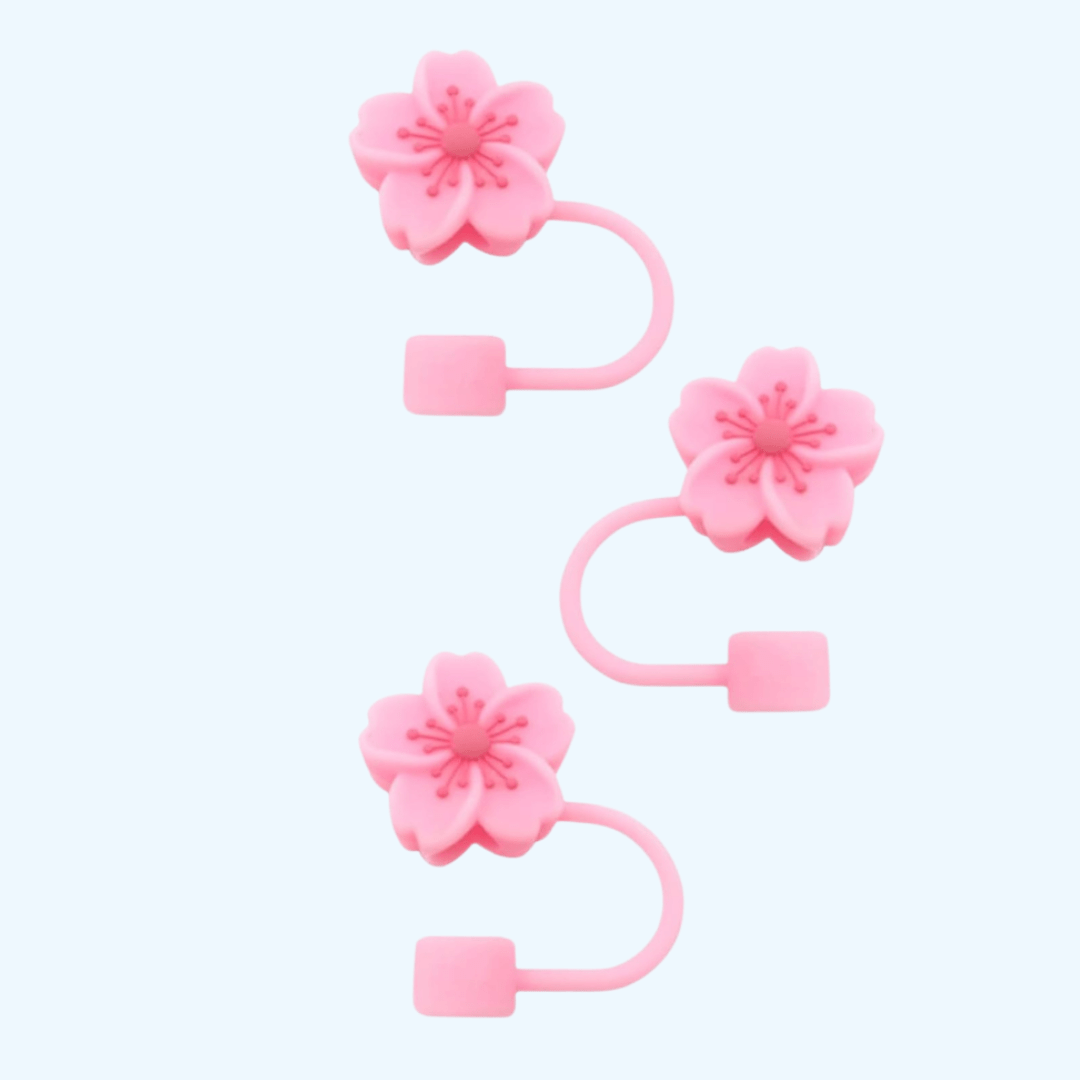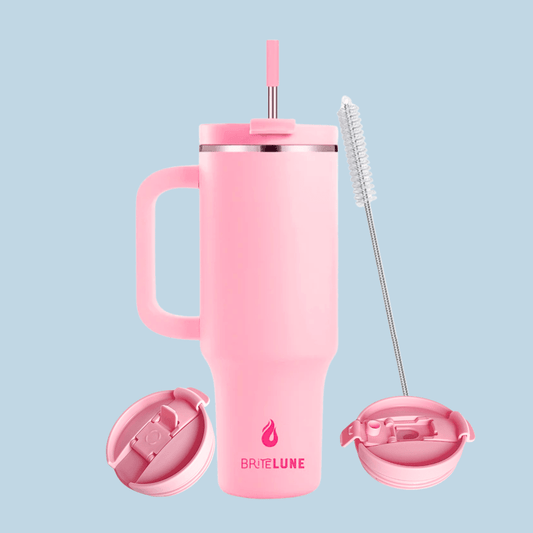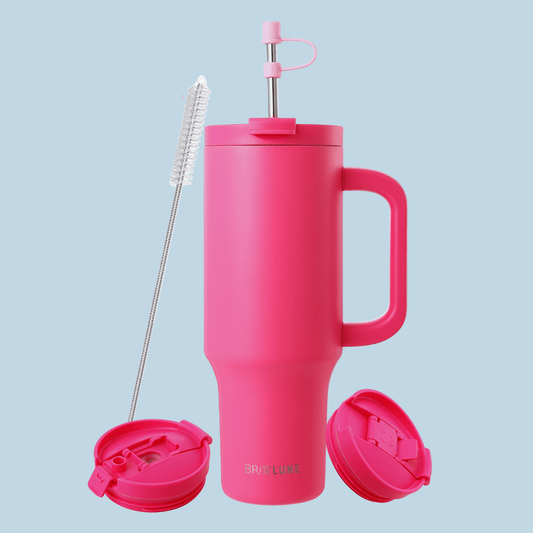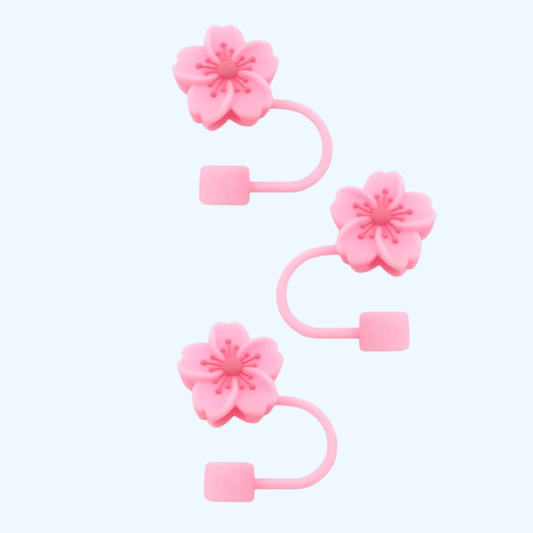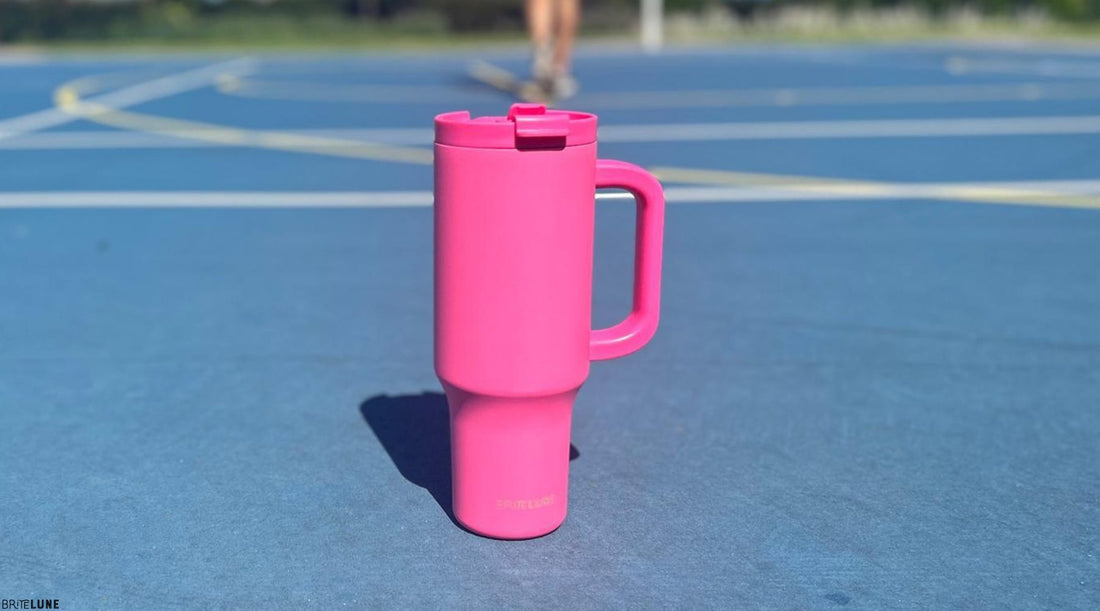
Which Water Bottle Material Is Best for Your Health?
Staying hydrated is essential—but so is choosing the right bottle to drink from. Whether you're heading to the gym, commuting, or simply working from home, the material of your reusable bottle plays a significant role in both your health and the environment.
With the rise of stainless, plastic, glass, and aluminium bottles, many people wonder: Which water bottle material is safest for daily use? Let’s take a closer look at the main differences, benefits, and health concerns to help you decide which option is truly the best choice.
Stainless Steel: Durable, Safe, and the Best for Everyday Use
Stainless steel bottles top the list when it comes to safety and long-term value. Known for their toughness, they’re free of toxic chemicals, maintain beverage temperature, and don’t require inner linings or coatings—making them ideal for both cold water and hot liquids.
These bottles are especially great for daily use and outdoor activities, and they perform well with high temperatures thanks to their metal water bottle construction and vacuum insulation.
Harvard Health recommends stainless steel water bottles as one of the safest and most effective materials for regular drinking water use.
For anyone concerned about durability, ease of cleaning, and avoiding harmful chemicals, stainless is the perfect choice—and often considered the best way to support both health and sustainability.
Aluminum: Lightweight Appeal with Hidden Risks
Aluminum water bottles are a growing trend, especially due to their minimal design and portability. But while they may look like a good option, the real issue lies in their inner lining. Most aluminum bottles are coated with plastic or resin to prevent metal leaching, and many of these linings contain Bisphenol A (BPA) or other toxic chemicals.
Prolonged use, particularly with hot drinks, can cause the lining to break down, leading to potential health risks and exposure to chemical residue.
A 2022 NIH study raises questions about the safety of coatings in aluminium bottles, especially with long-term exposure to high temperatures.
Despite the ubiquity of these good-looking aluminum bottles, they may not pass the leak test when it comes to clean hydration.
Plastic: A Convenient, But Problematic Choice
Plastic water bottles remain the most widely used—and often the most problematic. While BPA-free plastic has become more common, recent findings suggest that substitute chemicals may still have negative effects on human health.
The risks are especially high with single-use plastic bottles, which are not built for long-term use, and with reusable plastic bottles that degrade over time. Exposure to sunlight, heat, or acidic liquids further increases the chance of chemical leaching.
According to the Environmental Working Group, the main concern with plastic lies in its interaction with drinking water, especially after multiple uses.
Plastic may be a popular choice, but it’s far from the best option for those prioritizing health and safety.
Glass: Pure Taste, Fragile Build
Glass bottles are known for offering the cleanest, most neutral taste. Free of any metallic taste, glass water bottles don’t leach chemicals or absorb odors. They’re excellent for use with cold drinks, infused waters, and hot beverages, especially when purity is a top priority.
However, glass is fragile, even with protective sleeves. For commuters, travelers, or anyone with an active lifestyle, breakage is a major concern. And while the material itself is among the safest, it's not ideal for rough handling or outdoor activities.
The Bottle Depot highlights glass bottles for their purity but notes their limitations in durability.
Glass is a good thing—but best reserved for office or home use, not rugged daily use.
Final Verdict: What’s the Healthiest Water Bottle Material?
Based on safety, versatility, and long-term performance, stainless steel bottles stand out as the best water bottles for your health. They’re:
- Free from toxic chemicals
- Built for cold water, hot liquids, and daily use
- Ideal for preventing exposure to harmful chemicals
- The most reliable for long-term use across all settings.
As confirmed by Wirecutter by The New York Times, stainless steel is the safest, most effective, and most recommended material for everyday hydration.
While metal bottles like aluminum and even plastic water bottles are widespread, their coatings and chemical stability under high temperatures remain a primary concern. Glass, though safe, poses durability challenges that make it unsuitable for every scenario.
Conclusion
With so many options available, choosing the right bottle shouldn’t be confusing. When health is your priority and you want a bottle that supports everyday use, high performance, and peace of mind, stainless steel is the material to trust.
Make the switch to safer sipping—and give your body the clean hydration it deserves.
Use code BRITE20 to get 20% off your BriteLune tumbler today!
